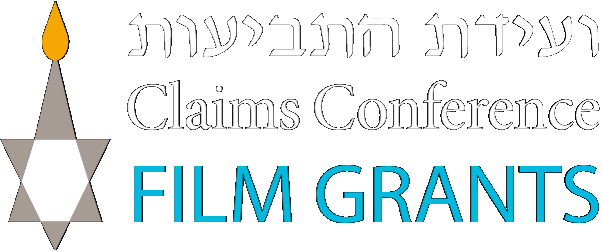The Consequences of Truth tells the story of Alfred Wetzler, a Slovak Jewish hero who warned the world about the Nazi extermination machine, and yet was persecuted and erased from history by his own government after the war.
Synopsis
In 1942 Alfred Wetzler is deported to Auschwitz. He joins the camp resistance and when its leadership finds out that one million Hungarian Jews will be deported, they decide someone should escape to persuade the Allies to bomb the camp. Wetzler and Rudolf Vrba are chosen as the best candidates to complete this suicidal mission. Against all odds, they succeed and write a report about the camp’s extermination machinery that receives worldwide attention. It is considered a gross “Jewish” exaggeration by some in the Allied leadership and as a result the camp isn’t bombed – a fact that will haunt Vrba and Wetzler for the rest of their lives.
After the war, Wetzler enthusiastically joins the Communist Party of Czechoslovakia. But, in 1950 he is implicated in an antisemitic trial and only narrowly avoids imprisonment. Afterwards, he is considered an enemy of the state and faces harsh persecution. In 1964, the travels to the Frankfurt Auschwitz Trial to testify against former SS guards. In the 1970s and 1980s Wetzler is under surveillance of the secret service. All mentions of him are suppressed, and he withdraws from society out of fear for his family. In 1988 he dies in obscurity in Bratislava. resistance movement, his persecution in communist Czechoslovakia, and his fraught family life. Merging the real (archive) together with the imaginary (reenactments) will create a unique blend that will allow the viewers to access the life and time of Alfred Wetzler in the most emotionally and intellectually engaging way. In a world in which truth is constantly questioned, the story of Alfred Wetzler serves as a reminder of its objectivity and importance.
About the Director
Denis Dobrovoda is an Oscar and EFA-qualified documentary film director. His 2022 debut documentary The Cathedral won the Best Film Award at the 62nd Krakow Film Festival. The film was cinema-released in three countries and broadcast on TV channels worldwide, including in Japan, South Korea, New Zealand, Switzerland, Austria, and other countries. Denis has also produced or directed a number of TV productions for British TV broadcasters including ITV and Channel 4.
Artistic Statement
Alfred Wetzler’s and Rudolf Vrba’s escape from Auschwitz is a story of great moral significance. By smuggling out a message about the Nazi extermination machinery, Wetzler and Vrba were attempting to save the lives of over one million Hungarian Jews that they knew were destined for extermination. With such a colossal clandestine killing programme in place, the stakes for the escapees could hardly be greater. They endured unimaginable hardships and spent their post-war lives reflecting on all the lives lost before the cessation of Hungarian deportations in July, 1944. It is precisely the morality of Alfred Wetzler that forms the crux of the film for me.
Visually and sonically the film will be constructed in a way that will stress the ethical and human dimension of the narrative. My aim is to get as close as possible to Alfred Wetzler’s inner world.
For this purpose the film will be built on three narrative and visual pillars. Firstly, archival footage that will illustrate large chunks of the story. Some of the footage is of old interviews with Alfred Wetzler himself, so we will get to experience the story directly through him. Secondly, our interviews with historians and friends of Wetzler’s will provide historical and personal context and glue the narrative together. And finally, we will reenact scenes from Wetzler’s life to illustrate the most important moments. These reenactments will use actors representing Wetzler and other characters, and will be shot in a dark film studio with minimalist set design. Combined with archival footage, this will create an imaginary space in which the drama of Alfred Wetzler’s life will play out.
The main artistic idea behind the film is re-inserting Alfred Wetzler into history. The reenacted footage will pull him out of obscurity and flesh out an existence that has been largely erased from history.
In one of the reenacted scenes I intend to merge a voice recording of Wetzler with footage of the actor playing Wetzler, who will be lip-syncing. Thus, Wetzler’s real voice will be combined with reenacted material. The rest of there enactments will be silent and will contain recreations of Wetzler’s time in the resistance movement, his persecution in communist Czechoslovakia, and his fraught family life.
Merging the real (archive) together with the imaginary (reenactments) will create a unique blend that will allow the viewers to access the life and time of Alfred Wetzler in the most emotionally and intellectually engaging way. In a world in which truth is constantly questioned, the story of Alfred Wetzler serves as a reminder of its objectivity and importance.
Year
in production
Film Type
Documentary
Language
Slovak
Production Country
Slovakia
Production Company
Arina Film Production
Director
Denis Dobrovoda
Producer
Silvia Panakova
Funding
With Assistance from Conference on Jewish Material Claims Against Germany
Supported by the Foundation Remembrance, Responsibility and Future and by the German Federal Ministry of Finance

